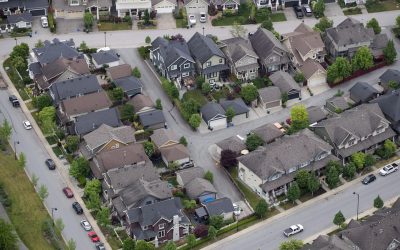The average household can no longer afford a home in the average price range. Housing is so expensive in Vancouver that an additional annual income of between $22,000 and $40,000 is required for the average house, compared to other major metropolitan areas (Toronto, Montreal, Ottawa, Calgary and Edmonton). Most people are priced out of the market for the average house and have to accept lower-cost housing, which is generally smaller and can be of lower quality. Moreover, Vancouver has the highest house prices relative to income in the New World (Canada, Australia, New Zealand and the United States).
The principal cause of this difference is likely Vancouver’s urban containment landuse policies. Unusually high house prices occur when such policies are strongly enforced. The same policies have also been instrumental in making Vancouver’s traffic congestion the worst in North America (worse than Los Angeles) and third worst in the high-income world.
Focusing on Priorities: Over the past two centuries, the world has become urban, as people have moved to the cities to better their lives. The very purpose of cities is to facilitate a higher standard of living for residents and to reduce poverty.
Consistent with this, the domestic public policy priority of most governments is the betterment of people by facilitating a higher standard of living and reducing poverty.
Yet, the dominant strain of urban planning, which is urban containment policy, works against the aspirations of households and against the fundamental policy priority of a better standard of living. Urban containment policy (also called “compact city policy,” “smart growth” “livability” and other terms) seeks to limit or prohibit development on or beyond the urban fringe. By creating an imbalance of demand over supply for residential land, house prices are driven up, breaking their historic and fundamental nexus with household income. The increase in housing costs, the largest component of household budgets, reduces discretionary income, which translates into a lower standard of living and more poverty.
There are few, if any, places where this loss of housing affordability and reduction in the standard of living is more evident than in Vancouver.
There is a need to focus on the fundamental priority of improving the standard of living and reducing poverty (Section 1).
The Regional Growth Strategy: Metro Vancouver, through its Regional Growth Strategy, drafted under the provisions of British Columbia law and policy, oversees land and transportation policy in the Vancouver metropolitan area. A principal feature of the Regional Growth Strategy is an urban containment boundary that bans urbanization on most of the land that is appropriate for development; therefore, comparatively little land is available for the expanding urban area.
Regional authorities are attempting to minimize automobile use and, thus, regional policy favours the expansion of transit. These policies have resulted in a higher market share for transit, but automobiles continue to account for the vast majority of travel in the Vancouver metropolitan area.


